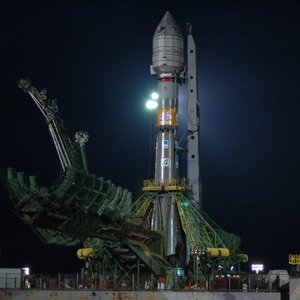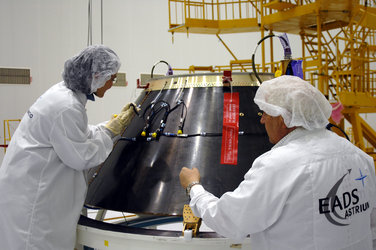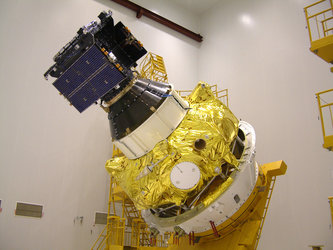Accept all cookies Accept only essential cookies See our Cookie Notice

About ESA
The European Space Agency (ESA) is Europe’s gateway to space. Its mission is to shape the development of Europe’s space capability and ensure that investment in space continues to deliver benefits to the citizens of Europe and the world.
Highlights
ESA - United space in Europe
This is ESA ESA facts Member States & Cooperating States Funding Director General Top management For Member State Delegations European vision European Space Policy ESA & EU Space Councils Responsibility & Sustainability Annual Report Calendar of meetings Corporate newsEstablishments & sites
ESA Headquarters ESA ESTEC ESA ESOC ESA ESRIN ESA EAC ESA ESAC Europe's Spaceport ESA ESEC ESA ECSAT Brussels Office Washington OfficeWorking with ESA
Business with ESA ESA Commercialisation Gateway Law at ESA Careers Cyber resilience at ESA IT at ESA Newsroom Partnerships Merchandising Licence Education Open Space Innovation Platform Integrity and Reporting Administrative Tribunal Health and SafetyMore about ESA
History ESA Historical Archives Exhibitions Publications Art & Culture ESA Merchandise Kids Diversity ESA Brand Centre ESA ChampionsLatest
Space in Member States
Find out more about space activities in our 23 Member States, and understand how ESA works together with their national agencies, institutions and organisations.
Science & Exploration
Exploring our Solar System and unlocking the secrets of the Universe
Go to topicAstronauts
Missions
Juice Euclid Webb Solar Orbiter BepiColombo Gaia ExoMars Cheops Exoplanet missions More missionsActivities
International Space Station Orion service module Gateway Concordia Caves & Pangaea BenefitsLatest
Space Safety
Protecting life and infrastructure on Earth and in orbit
Go to topicAsteroids
Asteroids and Planetary Defence Asteroid danger explained Flyeye telescope: asteroid detection Hera mission: asteroid deflection Near-Earth Object Coordination CentreSpace junk
About space debris Space debris by the numbers Space Environment Report In space refuelling, refurbishing and removingSafety from space
Clean Space ecodesign Zero Debris Technologies Space for Earth Supporting Sustainable DevelopmentLatest
Applications
Using space to benefit citizens and meet future challenges on Earth
Go to topicObserving the Earth
Observing the Earth Future EO Copernicus Meteorology Space for our climate Satellite missionsCommercialisation
ESA Commercialisation Gateway Open Space Innovation Platform Business Incubation ESA Space SolutionsLatest
Enabling & Support
Making space accessible and developing the technologies for the future
Go to topicBuilding missions
Space Engineering and Technology Test centre Laboratories Concurrent Design Facility Preparing for the future Shaping the Future Discovery and Preparation Advanced Concepts TeamSpace transportation
Space Transportation Ariane Vega Space Rider Future space transportation Boost! Europe's Spaceport Launches from Europe's Spaceport from 2012Latest
Giove - The Clock Is Ticking
On Thursday 19 January , the European Space Agency and Galileo Industries GmbH sign a Ä950 million contract that will pave the way for the operational deployment of Galileo. The ceremony will take place at the German Ministry of Transport (Berlin) in the presence of Minister Wolfgang Tiefensee, ESAís Director General Jean-Jacques Dordain and top industry representatives.
After the successful launch of GIOVE-A on 28 December 2005 and the acquisition of the first ""Galileo"" signal on 12 January 2006, Galileo is now well underway from the drawing board into space. The contract to be signed on 19 January covers the development and in-orbit validation of the constellation's first four operational satellites. Today's transmission includes highlight images of the Giove-A launch and an outline of Galileo, as pre-event background footage for the signature.
ëGiove ñ the clock is tickingí
10 00 00 Generic
10 00 40 Start of A-roll
10 00 50 With ESAís launch of Giove three days after Christmas, one of Europeís most ambitious technology projects ever began to materialize.
10 00 59 Silent, yet unstoppable. The clocks are now ticking for the deployment of Galileo, Europeís own satellite navigation system. Since January 12th, the day the signal generator onboard the Giove-A satellite was switched on, the first of the Galileo test satellites has been sending valuable navigation signals. And it will continue to do so round-the-clock, every day of the year while simultaneously testing performance in the radiation levels of the selected orbits..
10 01 29 Thanks to the atomic clocks installed onboard, the signals transmitted by navigation satellites are extremely precise. A small cheap receiver will suffice to determine a personís position on the globe or the direction of a moving object, with an accuracy of one metre or less.
10 01 48 Expectations are extremely high
-
CREDIT
ESA -
LICENCE
ESA Standard Licence
-
Documentary
-
-
-
-
-
-

Artist's impression of GIOVE-A

GIOVE-A on the launch pad

Preparing the adapter between Soyuz and Giove-A

GIOVE-A mated with Fregat launcher upper stage















 Germany
Germany
 Austria
Austria
 Belgium
Belgium
 Denmark
Denmark
 Spain
Spain
 Estonia
Estonia
 Finland
Finland
 France
France
 Greece
Greece
 Hungary
Hungary
 Ireland
Ireland
 Italy
Italy
 Luxembourg
Luxembourg
 Norway
Norway
 The Netherlands
The Netherlands
 Poland
Poland
 Portugal
Portugal
 Czechia
Czechia
 Romania
Romania
 United Kingdom
United Kingdom
 Slovenia
Slovenia
 Sweden
Sweden
 Switzerland
Switzerland


























